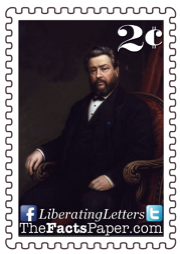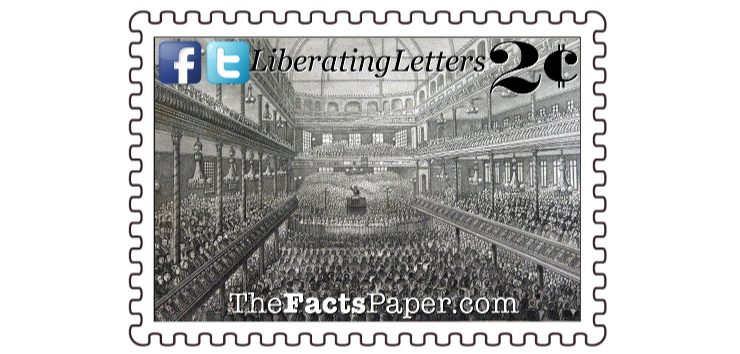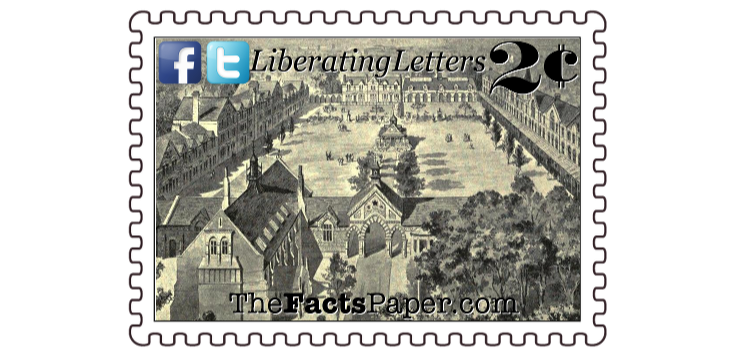Following a generous donation of £20,000 by Anne Hillyard, Spurgeon founded the Stockwell Orphanage in 1867. Originally catering to boys, the facility admitted girls in 1879. Located in southern London, even World War II failed to close its doors following severe damage from bombing raids. It continues on in another city, still managing over 50 Children’s Centres throughout Great Britain today.
Spurgeon spent his life truly beloved by some and frankly despised by others. In a sermon on November 11, 1883, commemorating Luther’s 400th birthday, Spurgeon revealed where he received his strength to keep going.
“I have often admired Martin Luther, and wondered at his composure. When all men spoke so ill of him, what did he say? Turn to that Psalm—'God is our refuge and strength, a very present help in time of trouble; therefore we will not fear, though the earth be removed, and though the mountains be carried into the midst of the sea.' In a far inferior manner, I have been called to stand up in the position of Martin Luther, and have been made the butt of slander, a mark for laughter and scorn; but it has not broken my spirit yet, nor will it, while I am enabled to enjoy that quiescent state of—'So he giveth his beloved sleep.' But thus far I beg to inform all those who choose to slander or speak ill of me, that they are very welcome to do so till they are tired of it. My motto is cedo nulli—I yield to none.” (see Here I Stand)
A Calvinist Baptist, Spurgeon preferred to not be defined by a denomination, but rather a follower of Christ. "I am never ashamed to avow myself a Calvinist. I do not hesitate to take the name of Baptist, but if I am asked what is my creed, I reply, 'It is Jesus Christ.'"
Spurgeon was not afraid to take on the most fundamental doctrine of any denomination. He vexed the Church of England and other major Christian faiths by preaching against Baptismal Regeneration, or “being born again”. He was even willing to take on his fellow Baptists. As Luther questioned the Catholic Church, Spurgeon confronted his own denomination in errors he saw. He unapologetically criticized other Baptist Union congregations in what became known as the “Downgrade Controversy.” In his personally produced magazine, The Sword & The Trowel, Spurgeon accused other Baptists of “downgrading” the Bible, denying the theology of “Sola scriptura,” or scripture alone. He argued believers in Christ should not “declare union with those who make light of it,” by proclaiming “the fall a fable”, “deny the personality of the Holy Ghost”, and “call justification by faith immoral.”
Likewise, Spurgeon recognized the damage Charles Darwin’s theory of evolution inflicted to the respect and authority of the Bible in people’s eyes. (see Sleeping Beauty, Gorilla Warfare, and Inherit The Truth) Believing God formed every human being in His image, evolution and other disparaging secular teachings enabled oppressors to label different races as inferior. Therefore, allowing them to convince the masses that slavery is not only alright, in many cases it is beneficial and compassionate for the slave. It was this concept that infiltrated churches, including America, replacing creationism with racism.
As his rheumatism, gout, and Bright’s disease, or the inflammation of the kidneys, became overwhelming, Spurgeon preached his last sermon on June 7, 1891. He died seven months later on January 31, 1892, at age 58, and was laid to rest in London, England.
Not surprising, this amazingly popular preacher accumulated great wealth over his lifetime, roughly $100,000,000 in his day. However, upon his death, Spurgeon only had £2000 to his name. He used his vast fortune during his lifetime to fight oppression, injustice, and poverty, along with spreading the Gospel throughout the world. An avid reader, his wife sold his extensive library and other personal items to survive, most of which Spurgeon Library at Midwestern Baptist Theological Seminary acquired.
Liberty, as you learn of the accomplishments of Charles Spurgeon, it is amazing to believe he began his ministry at age seventeen, becoming world renown by nineteen. Before the time of Facebook, Twitter or the Internet, Spurgeon was known around the world. Meanwhile, today’s society continues to extend adolescence into one’s twenties. ObamaCare allows children to remain on their parents’ insurance until they are twenty-six. A recently published study claims children are officially “Teenagers” until age twenty-four. One can only surmise this is a veiled attempt to normalize dependency onto our youth, conditioning them to the idea that they need to be taken care of. Therefore, when Congressmen propose government programs, which take over the parental role, kids find no reason to object.
Not only was Spurgeon married, raising a family, leading a church and a published author by age twenty-two, he was also the most popular preacher in the world! Boldly willing to make congregants uncomfortable for the sake of the Gospel and salvation, many teenagers today melt down if simply being told “no,” let alone that there are only two genders and it’s not fluid.
Liberty, Spurgeon said, ‘We shall soon have to handle truth, not with kid gloves, but with gauntlets, – the gauntlets of holy courage and integrity. Go on, ye warriors of the cross, for the King is at the head of you.” It is time to take off the kid gloves. Progressives have been openly persecuting and oppressing Christians and God’s Truth for 100 years. We deny God’s Will for us by staying silent and cowering in the corner. Christ commands us to spread his Gospel and we are failing to do that. Remembering “God is our refuge and strength, a very present help in time of trouble,” do not let insults or confrontation force you into silence and compliance. It is time to put on the gauntlets, for Christ’s sake. Onward, Christian soldiers!
That’s my 2 cents.
Love,
Mom
January 31, 2018
Dear Liberty,
"Look unto me, and be ye saved, all the ends of the earth, for I am God, and there is none else.” Isaiah 45:22 With this one verse, God opened the heart and mind of a 16-year-old boy, who became the Martin Luther and George Whitfield of his time. (see Here I Stand and The Forgotten Founding Father)
John and Eliza Spurgeon welcomed their son Charles Haddon on June 19, 1834, in the country town of Kelvedon, Essex, England. Too poor to provide for the infant, the couple sent him to live with his grandparents in Stambourne, as was common at the time. He attended the Church of England parish where his grandfather preached, but he never connected to God’s Word.
It wasn’t until Spurgeon sought shelter from a snowstorm on January 6, 1850, did God speak to him. The Anglican entered a Primitive Methodist Chapel and upon hearing the Isaiah passage, his heart was moved. Within months he entered and was baptized in the Baptist Church. Obtaining informal instruction the remainder of the year, Spurgeon preached his first sermon the following winter. Shortly after, a small country church near his home installed him as pastor, where he wrote a Gospel tract which became the first of his vast collection of published works.
Following in Luther’s steps, Spurgeon utilized Johann Gutenburg’s printing press to spread the Gospel throughout the world. (see The Knock Heard ‘Round The World and All In Due Time) As a result, by age twenty-two he was the most popular preacher in the world, earning the name the “Prince of Preachers.” While Luther became the first best selling author, Spurgeon had published more words than any other preacher. By his death, 3,600 of his sermons along with 49 volumes of other material such as devotions, sayings, anecdotes, commentaries and illustrations had been put into print. He even published Our Own Hymn Book, which included several original compositions along with a large number of Isaac Watts’s Psalms and Hymns. (see Give 'Em Watts, Boys!)
While still just 19-years-old, the simple country preacher received a call from the largest Baptist church in London, New Park Street Chapel, in 1854. While most in his situation would be intimidated moving to and preaching in the largest city in the world, Spurgeon welcomed the opportunity. Eventually becoming Metropolitan Tabernacle, Spurgeon spent his 38 year tenure in the church's pulpit.
At the same time, American abolitionists formed the anti-slavery Republican Party to combat the growing complacency for the institution. (see The Birth Of A Movement) An avid abolitionist himself, Spurgeon spoke passionately against the practice of slavery. This did not play well in the South in America. Southern Baptists withdrew their support, as sermon sales sharply declining in the area. As fast as The New York Times could publish his sermons, pro-slavery advocates burned them a stone's throw away from where Rosa Parks would sit in jail 95 years later. (see Walking To Freedom) Threats to his life were so numerous, it is highly likely he would have been assassinated upon visiting the states. However, he inspired Americans, such as Frederick Douglass, who wrote Spurgeon about his gratitude for realizing God’s children may not all look alike, but they are indeed family. (see Reading, Writing, And Redemption)
The year 1856 brought several celebrations and tragedies to Spurgeon, beginning with his marriage to Susannah in January. That May, America took another step closer to war following Republican Sen. Charles Sumner’s caning on the U.S. Senate floor by a pro-slavery Democrat. (see The Birth Of A Movement) Meanwhile, the couple awaited the birth of their twin sons in September as Spurgeon worked on his first book, The Modern Whitfield, a collection of his sermons. (see The Forgotten Founding Father)
PRINCE OF PREACHERS


However, Spurgeon’s faith was about to be challenged like never before. A large crowd of 10,000 gathered to hear him at Surrey Gardens Music Hall on October 19, 1856. All would easily hear his Whitfield-like booming voice, yet the venue was becoming quite packed. As he spoke, a cry of “Fire!” rang out from someone in the crowd. Attendees raced to the exits with seven perishing before Spurgeon’s eyes in the stampede. As a result, he entered a deep depression, which he struggled with for many years, blaming himself for the deaths. But as with Luther’s depression and Paul’s ailment, God used his condition to instill compassion for those he preached to. Because of the help and encouragement of his wife, a year later Spurgeon spoke to a crowd of 23,654, the largest ever, at London’s The Crystal Palace.
It wasn’t long until the elitists in London, especially those in the Church of England, denounced the country boy with the weird accent, considering him ignorant and simple due to his dialect. Forgetting the church existed to uplift the poor and needy, the aristocrats had turned it into a privileged member’s only club. Christ experienced the same issue with the Pharisees as did Luther with the papacy and Whitfield with the Church of England. However, as with Christ, Luther and Whitfield, Spurgeon gained popularity because he brought the Gospel to the common man who was craving it, and doing it by speaking their language.
Luther translated the Bible so the people would have personal access to it. As a result, Spurgeon enjoyed worshippers so well versed in the Scriptures, he could preach on a passage without reciting it, confident the congregation already intimately knew it. At the time, they had no other distractions to keep them from studying the only book they had, The Holy Bible. Therefore, they knew every story by heart. Unfortunately in today’s busy world, even some of the most passionate Christians find it hard to study the Word as they should.
As a compassionate man, Spurgeon’s contributions to society expanded well beyond the church doors. Pulling from his experience, Spurgeon design a school to educate students for Baptist ministry who lacked any other substantial academic background. According to Spurgeon, “This is our College motto. We labour to hold forth the Cross of Christ with a bold hand among the sons of men, because that Cross holds us fast by its attractive power. Our desire is that every man may both hold the Truth, and be held by it; especially the truth of Christ crucified.” Originally called The Pastors’ College, it still operates today under the title Spurgeon’s College.



